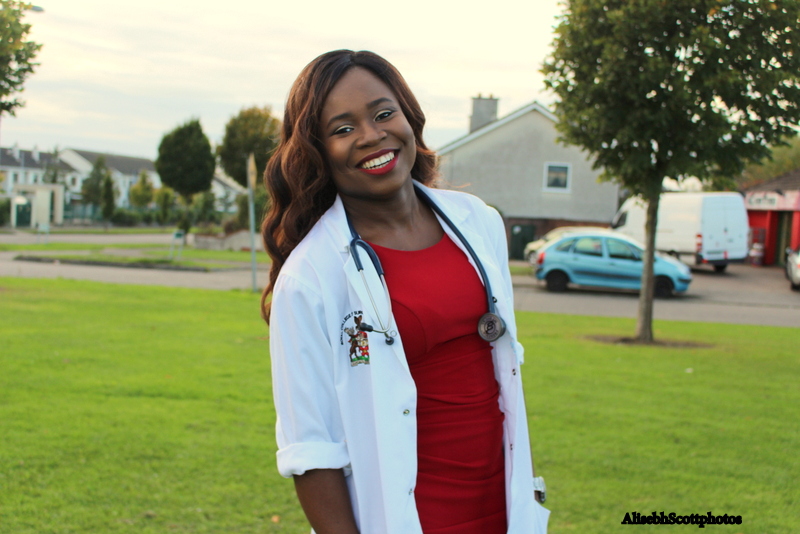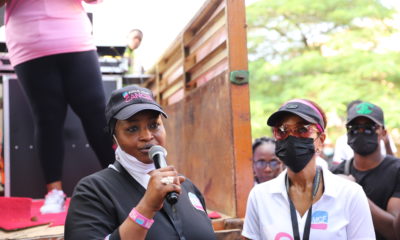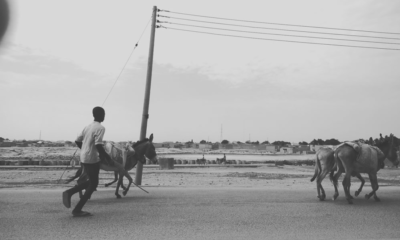Career
Dr Azibanigha Scott: Dear Foreign-trained Doctor, It Is That Time of the Year for the MDCN Assessment Exams
The assessment exam is usually a two-day exam with day one consisting of a written component and day two consisting of an OSCE or ORAL exams
 The MDCN assessment exam falls on May 22 and 23, 2019. Nerves are wrecking, cortisol is high, and your heart rate is slightly above your baseline. It is that time for the compulsory assessment exams conducted by the Medical and Dental Council of Nigeria for Foreign-trained doctors.
The MDCN assessment exam falls on May 22 and 23, 2019. Nerves are wrecking, cortisol is high, and your heart rate is slightly above your baseline. It is that time for the compulsory assessment exams conducted by the Medical and Dental Council of Nigeria for Foreign-trained doctors.
It is a few weeks to the exams, and I’m sure you are burning the midnight oil. But while preparations are going on, it is good to bear in mind the importance of studying smart.
I’m sure by now, you will agree that things in Nigeria are done slightly different compared to what you are used to, plus the disease spectrum is different, hence the exam style. Also, there is no available ‘curriculum’ for the exam per se, so you have to know everything about everything. The venue was previously the University of Abuja Teaching Hospital, Gwagwalada, but the new venue is Aminu Kano Teaching Hospital, Kano State.
506 out of 903 passed the last exam, which was in October 2018, meaning the odds are in your favour. Don’t fret, you have a high chance of passing it. I will discuss some tips to help you navigate the exam, some extra study you may need, and how to make the most of the time you have left.
The assessment exam is usually a two-day exam with day one consisting of a written component and day two consisting of an OSCE or ORAL exams.
Written component
It is a multiple choice exam that consists of two parts in one exam: regular MCQs and a picture test component. In the past, the MCQs had negative marking, but that was not the case in the last exam in October 2018.
The picture test is usually fifty questions with different clinical pictures, from pathognomonic features to medical equipment, and even radiology. You have to score at least 50% in the picture test in order to pass the exam.
Time is never enough for the written paper, so be wise. Do the picture test first before attempting the remaining section of the MCQ. A lot of people did vice versa and did not finish their picture test and failed the exam. Some tips to help you here are:
- Be there on time. These guys are strict, plus with accreditation and all, the exam usually starts 45 minutes to one hour from the scheduled time. Some people came really late thinking they could go in, but that was not the case.
- Since it’s a CBT, put in your details correctly. Make sure your name appears on your screen. If you have any problems, ask the IT guys, they will be there the whole time.
- Skip questions with bulky questions and answers as you have no time. This strategy worked for me. I went straight to answer questions with one or two sentences, and when I was done with those, I went to the long ones. Imagine spending two to three minutes reading a bulky question, and another one minute reading the long sentences in the answer options, and you don’t know the answer. That’s four minutes wasted.
- Here are some topics that you should absolutely know, given the short time you have to prepare: tetanus, malaria, SCD, Burkitt’s Lymphoma, heart failure, hypertension, cough, pleural effusion, SAH, epidural and subdural haemorrhage, pneumonia, pneumothorax, asthma, TB, HIV, diabetes, AKI, nephrotic and nephritic syndrome, liver cirrhosis, core topics in O&G and Paeds. It is not exhaustive, but if you know these inside out, you have a fair chance.
OSCE or ORAL Component
The next day is the usually the OSCE or ORAL exam. In the past, it used to be history taking or ‘clerking’ different actors with common conditions, doing physical exams, counselling patients, and interpreting labs; but it changes from time to time. Tips to help you here:
- Practice some core physical exams and remember. In Nigeria, physical exams begin with the head. For those of us from abroad: Europe, North America, South America, Australia and anywhere else in the world , physical exams begin with the hands. You have to unlearn what you have learned in order to adapt here. On a side note for those that just want to get their Nigerian licence and NYSC certificate before leaving the country again, it is very important to be cautious on habits you pick up while you are here – if you know what I mean. Practice physical exams in cardio, resp, GI, thyroid, pregnant abdomen.
- Know your medical and surgical emergencies, lab interpretations, radiology finding where necessary, and core management including doses; you could be asked any of them.
- Know how to counsel patients. Mother of a newly diagnosed SCD, fibroids, a patient who is refusing CS. Know the basic steps in counselling.
- Dress well. I cannot stress that enough. You give an impression subconsciously to the examiner on your kind of person by how you dress. Your examiners are mostly consultants who are conservative, so be mindful. Guys, a clean shirt and tie will do. Ladies, keep the make up light. Keep it simple. Make sure you can bend. Kneel at home without any issues before leaving your house, as you may be asked to do anything during the exam. You don’t want a situation where you cannot bend properly because of what you are wearing for the fear of a wardrobe slip.
- Be calm, think through and answer your questions, if you miss anything and you remember later, just go back.
- Learn about recent outbreaks in Nigeria, and look into any outbreak unique to the centre you are having your exams, in this case, the Aminu Kano Teaching Hospital, Kano State.
- You cannot go to the exam without knowing the five levels of prevention.
I know there is so much to cover in a short time, especially without a syllabus, but welcome to Naija! Some resource materials are available to make your life easy, from Youtube videos to tutorials from foreign-trained doctors:
- YouTube learning videos
Geeky medics worked for me, but for the Nigeria setting, a lot of people recommend Dr. Udefiagbon‘s videos. I personally didn’t use that because of the quality, but a lot of people found it useful. - Tutorials
Some doctors have taken the liberty to keep track of common topics and run tutorials to help fellow doctors. Some of them do crash courses to help you out. A few are:
- Nitmed tutorials
- Medituts Tutorials
- Acemedix tutorials
- Med-Aid Tutorials
- Books
The medical and dental council recommended these two books: Paediatrics in Pictures by Prof. P. Abiodun, and A Companion to Medical Students and Doctors by Dr. Iyang Ukot. Materials in these two books were assessed in the last exam. It would be nice to have a quick look during this time of revision.
Finally, to take the exam, you have to be there. The last thing you want to stress about is your transportation and accommodation during this period. Transnaija services have been serving us logistics goals. There is a telegram group for doctors to connect and acquaint themselves with the many resources available to help them; some doctors also post practice questions daily.
I hope you found this useful, and good luck in the upcoming exams.




















